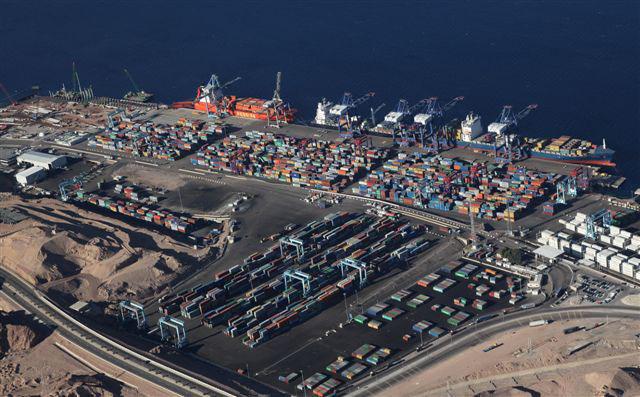You are here
Importers urged to boycott Israeli sea ports
By Omar Obeidat - Aug 06,2014 - Last updated at Aug 06,2014

AMMAN – The Amman Chamber of Commerce (ACC) has called on merchants and importers to boycott Israeli seaports in solidarity with the people of Gaza.
In a phone interview with The Jordan Times on Wednesday, ACC Vice President Ghassan Kharfan urged importers to give priority to Aqaba Port despite the higher costs compared to regional ports, calling on the government and Aqaba Container Terminal (ACT) officials to work on boosting the competitiveness of Jordan’s only port by not hiking handling and service fees.
“After the Israeli crimes against the people in Gaza, traders should stop importing their goods via Israeli ports,” Kharfan said.
The leading sector representative complained that recent measures by ACT to increase fees have forced traders to use other regional harbours, citing the Port of Jeddah in Saudi Arabia as a “much cheaper” shipment venue for goods coming to the domestic market.
Kharfan warned that some Israeli middlemen come to Jordan to convince local businesspeople to use ports in Israel as a cheaper destination for them.
“They tell importers that they can deliver their shipments to the free zone in Zarqa with lower costs,” he said, pointing out that if containers remain in the Aqaba terminal for more than three weeks, ACT charges importers JD40 per day in storage fees.
In May, ACT announced a tariff adjustment effective June 15, 2014.
The adjustment was a result of consumer price index changes and increased utility costs, the company said.
Ihab Rawashdeh, head of ACT’s media and public relations department told The Jordan Times over the phone that the company has kept its tariffs unchanged over the last four years, attributing the tariff adjustment to the rapidly rising costs for utilities and services.
“The cost of petrol has increased by more than 45 per cent and the cost of electricity has increased by over 100 per cent since the last tariff adjustment in 2010,” Rawashdeh said.
Commenting on the fact that Jordanian traders use other ports, Rawashdeh said the competitiveness of a port is not measured in price only but also in its productivity, reliability and ability to attract the highest number of shipping lines and the largest vessels.
“We believe competitiveness is also measured in terms of the safety of its port users and the security of the cargo,” the company said in a statement posted on its website.
“In addition, comparing charges between ports in two different countries is a difficult exercise as many different factors must be taken into consideration: cost of labour, electricity, petrol, prevailing rules and regulations, whether the port is private or government subsidised, whether it is a trans-shipment port or a gateway port,” ACT said.
Related Articles
AMMAN – Consumers, activists, suppliers and regulators are involved in a blame game over prices of commodities as global oil prices have plu
Amman Chamber of Commerce (ACC) Vice President Ghassan Kharfan on Wednesday called for increasing trade exchange between Jordan and Taiwan.
Aqaba Container Terminal (ACT) employees are pressing ahead with an open-ended strike that started on Monday at 7pm to demand a number of benefits that the company had promised to meet.


















